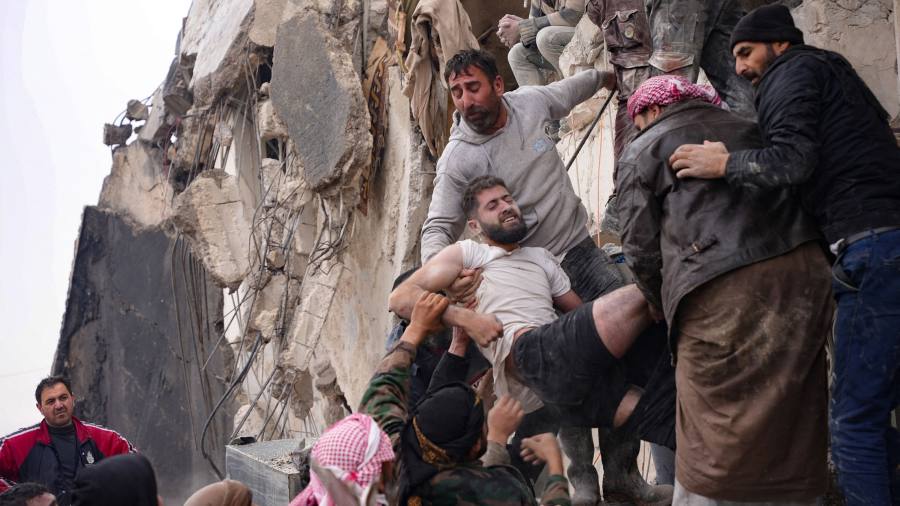
The writer is a professor at the Josef Korbel School of International Studies, University of Denver
When a massive earthquake killed tens of thousands of people in Turkey and Syria in February, activists around the world scrambled to raise money for relief efforts through platforms such as GoFundMe. They immediately hit a roadblock: US sanctions. To comply with regulations, GoFundMe told users, it would not only block fundraising efforts mentioning Syria earthquake relief, but would suspend the accounts of those making the requests.
Facing public outcry, the Biden administration issued a special, limited-time licence exempting Syria earthquake relief transactions, after which GoFundMe allowed the campaigns to go ahead. Yet while this carve-out may have eased some difficulties in bringing aid to victims, no such exceptions exist for other countries under US sanctions.
In recent years, sanctions have become western countries’ foreign policy tool of choice to deal with hostile international actors. In a study published today by the Center for Economic and Policy Research, I show that 27 per cent of all states — and 29 per cent of the world economy — are subject to sanctions. This represents a big increase in the past few decades — as recently as the 1990s, they affected less than 10 per cent of countries and about 5 per cent of the world economy.
The evidence decisively shows that sanctions make living conditions worse in target countries. I looked at 32 academic papers that estimated their effect. Of these, 30 found consistently negative effects on measures ranging from poverty, inequality and growth to health conditions and human rights.
The magnitude of the harm is dramatic. One study estimated that sanctions would lead to a decline in a state’s gross domestic product by as much as 26 per cent — equivalent to that in the Great Depression. Another found falls in female life expectancy of 1.4 years — similar to the estimated effect on global mortality of the pandemic. In many cases, the harm is similar to that suffered during armed conflicts, making economic sanctions possibly the deadliest weapon used by western powers.
The main channel through which sanctions work is constraining the public sector’s access to foreign exchange. They are typically followed by declines in spending on public health, education and food assistance. Consequent currency depreciation and inflation also drive declines in real wages.
Advocates of sanctions argue that targeted regimes, often responsible for human rights violations, are unlikely to channel foreign currency revenues to their people regardless of such measures. But the evidence shows that, if forced to cut spending, they will protect the rents of cronies at the expense of more vulnerable populations.
US authorities claim their sanctions target only those responsible for corruption and undermining democracy and human rights, and do not prohibit humanitarian aid. But, as Syria made clear, standard humanitarian exceptions are often ineffective, as financial institutions can refuse to process transactions for fear of inadvertently helping funds flow to sanctioned entities.
In recent years, there has been an increasing use of so-called targeted sanctions by freezing the resources of central banks and state-owned oil monopolies. This blocks access to foreign currency revenues and international reserves critical to the functioning of any economy, blurring the distinction between targeted and comprehensive sanctions.
Woodrow Wilson once described sanctions as “something more tremendous than war”. Regrettably, governments that impose sanctions all too often brush aside concerns about their harm. Given the weight of the evidence, their attitude reflects a disregard for the lives of people in developing countries. No state showing such indifference to the plight of the world’s most vulnerable groups can call itself a champion of freedom.